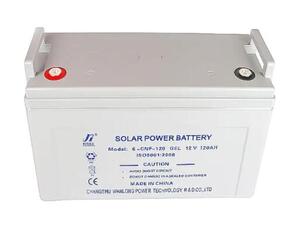What Are The Safety Hazards Of Lead-Acid Batteries
Body
Lead-acid batteries come in a variety of designs and sizes. Available with vented or valve-regulated batteries. Products range from small sealed batteries around 5 Ah (e.g. for motorcycles) to large ventilated industrial battery systems up to 500 Ah for traction applications. What situations can cause battery safety accidents?
Mechanical Abuse: Mechanical mishaps or mechanical misuse of LA batteries can result in hazards of varying severity, depending on the circumstances. Simple mechanical damage to the housing can lead to electrolyte leakage. However, in modern VRLA batteries with insufficient electrolytes, the risk of primary electrolyte leakage has been minimized. As described in Section 2.3.2, sulfuric acid is a very hazardous substance for any skin contact. In a worse case, even lead particles can escape from the battery case, turning the incident into an environmental problem. The safest critical event represents strong mechanical destruction of the electrode stack. A strong electrical short can be caused, resulting in the situation already described in the previous section.
Thermal abuse: Storage at high temperatures is a common problem as corrosion of battery components increases. From a mechanical point of view, these components are generally very stable and robust, withstanding temperatures of around 100 degrees Celsius. At 110°C, the electrolyte begins to evaporate water. The high evaporation enthalpy of the electrolyte provides temperature stabilization for a period of time until the electrolyte is depleted.
Under constant voltage charging of valve-regulated lead-acid batteries (VRLA), there is a risk of thermal runaway conditions, especially after aging and dehydration. Facilitating oxygen transport through the separator and the liquid film on the anode can increase the exothermic oxygen reduction process at the anode. The depolarization of the negative electrode thus induced in turn leads to a further acceleration of the oxygen generation rate at the positive electrode, resulting in uncontrolled heating [3,20,25]. It should be mentioned that the thermal runaway of VRLA batteries is usually much more severe than that of Li-ion-based systems.
Overcharge, over-discharge, and reversal: Lead-acid batteries have great advantages over other rechargeable battery systems because both polarities of it consist of lead components (lead, lead dioxide, lead sulfate), which are can be converted into each other when discharged. Thus, by design and layout, lead-acid batteries provide some tolerance for overcharge and reversal without side reactions that cause electrolyte decomposition and gassing. However, if the electrical energy can no longer be used for the electrochemical conversion process, the water starts to break down into hydrogen and oxygen.
Changshu Wanlong Power Technology R&D Co., Ltd. is a lead acid battery manufacturer from China. The company sells sealed maintenance-Free batteries and Sealed 12v batteries all year round.













Comments